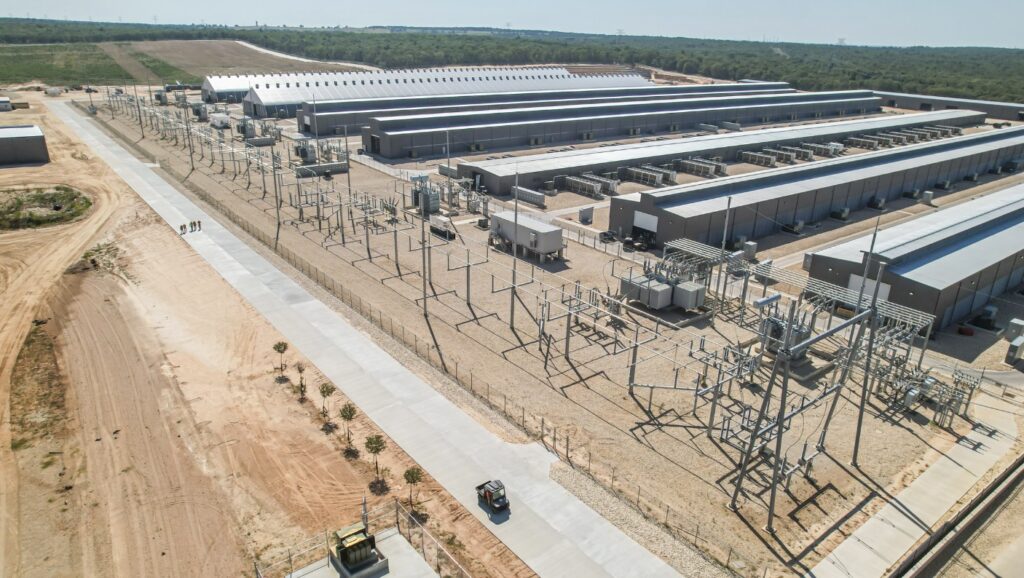Bitcoin miners are constantly seeking ways to reduce costs and increase profitability. One of the most significant advantages of using alternative energy sources is its cost-effectiveness. Renewable energy is becoming the preferred choice for miners due to the lower costs associated with its utilization.
Environmental benefits
In addition to cost-effectiveness, alternative energy sources offer significant environmental benefits. Traditional energy sources such as fossil fuels contribute to carbon emissions and other environmental degradation. Renewable energy sources, on the other hand, produce little to no greenhouse gases and help combat climate change.
Lower costs per BTC
The utilization of alternative energy sources has a direct impact on the cost per Bitcoin (BTC) for mining companies. According to industry reports, mining operations powered by renewable energy sources witness significantly lower costs per BTC.
Long-term sustainability
The shift towards alternative energy sources is not just a short-term solution for Bitcoin miners. It is a long-term trend driven by the industry’s aspiration for sustainable success. By embracing renewable energy, mining companies ensure their operations can thrive not just in the present, but also in the future.
Different Types of Alternative Energy Sources
Wind energy
Wind energy is one of the most popular alternative energy sources for Bitcoin mining operations. By utilizing wind turbines, miners can harness the power of the wind to generate electricity. Wind energy is a clean source of power that produces no greenhouse gas emissions and has a minimal environmental impact.
Solar energy
Solar energy is another widely-used alternative energy source in the mining industry. By installing solar panels, miners can harness the abundant energy from the sun to power their operations. Solar energy is clean, renewable, and widely available, making it an attractive option for Bitcoin miners worldwide.
Ocean thermal energy
Ocean thermal energy is a lesser-known alternative energy source that holds great potential for Bitcoin miners. This technology harnesses the temperature differences between the surface water and deep seawater to generate electricity. Ocean thermal energy is abundant in coastal areas and has a minimal environmental impact.

Coal refuse
Coal refuse is an alternative energy source that is gaining traction in the mining industry. Coal refuse refers to the waste left behind after coal mining operations. Instead of letting this waste pile up and contribute to environmental degradation, mining companies can convert it into a valuable energy source.
Cost Reduction Strategies for Bitcoin Miners
Switching to renewable energy
One of the most effective cost reduction strategies for Bitcoin miners is switching to renewable energy sources. By transitioning from traditional sources like fossil fuels to wind, solar, ocean thermal, or coal refuse energy, miners can significantly lower their energy costs.
Utilizing excess electricity
Renewable energy sources often produce excess electricity that can be harnessed for Bitcoin mining operations. Instead of letting this excess energy go to waste, miners can use it to power their mining rigs. This utilization of excess electricity reduces their dependency on the grid and lowers their energy costs.
Partnerships between Mining Companies and Renewable Energy Providers
Mutually beneficial collaborations
Partnerships between mining companies and renewable energy providers offer mutually beneficial solutions. These collaborations allow mining companies to access and utilize renewable energy sources, thereby reducing their carbon footprint and energy costs.
Innovative solutions for energy supply
Mining companies and renewable energy providers are collaborating to develop innovative solutions for energy supply in the mining industry. These solutions often involve unique financing models, joint ventures, or power purchase agreements.
Government Support for Renewable Energy in Bitcoin Mining
Legislative initiatives promoting renewable energy integration
Governments worldwide are recognizing the importance of renewable energy integration in various industries, including Bitcoin mining. Legislative initiatives are being enacted to encourage and support the transition to alternative energy sources.
Tax incentives and subsidies
Tax incentives and subsidies play a crucial role in promoting renewable energy adoption in Bitcoin mining. By providing tax breaks or financial assistance, governments offset the initial investment costs associated with transitioning to alternative energy sources.
Environmental Impact of Bitcoin Mining

Energy consumption and carbon footprint
Bitcoin mining operations consume significant amounts of energy, which directly translates to carbon emissions. The energy-intensive nature of mining, combined with the reliance on traditional energy sources, has raised concerns about its environmental impact.
Mitigation strategies
To mitigate the environmental impact of Bitcoin mining, miners can implement several strategies. The shift to renewable energy is the most effective strategy, as it directly reduces carbon emissions.
Future Trends in Alternative Energy Sources for Bitcoin Miners
Advancements in renewable energy technologies
The future of alternative energy for Bitcoin miners looks promising, as advancements in renewable energy technologies continue to unfold.
Integration of blockchain and energy systems
The integration of blockchain technology with energy systems presents exciting opportunities for the future of Bitcoin mining. Blockchain enables transparent and secure peer-to-peer energy trading, allowing miners to access renewable energy sources directly.
Global adoption and scalability
As the benefits of alternative energy sources become increasingly evident, the global adoption of renewable energy in Bitcoin mining is expected to grow.
Conclusion
In conclusion, Bitcoin miners are actively embracing alternative energy sources to enhance cost-effectiveness, reduce environmental impact, and secure long-term sustainability. By utilizing wind, solar, ocean thermal, and even repurposed coal refuse energy, miners can tailor their energy supply to their needs and geographical locations. Partnerships with renewable energy providers, government support, and advancements in technology are driving the transition to cleaner and more sustainable mining practices. This shift not only benefits individual mining operations but also contributes to a greener and more responsible cryptocurrency industry as a whole.















